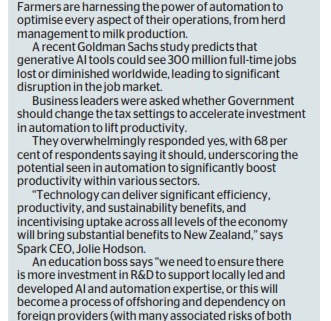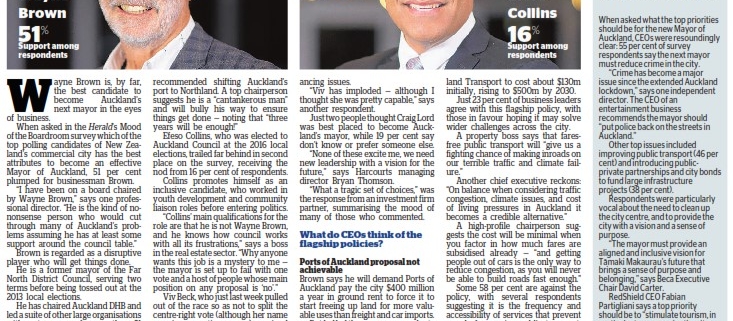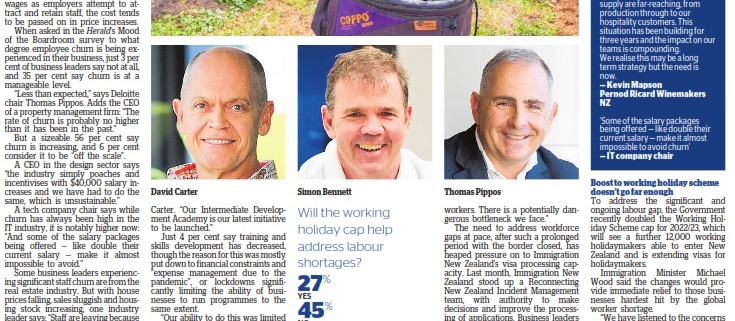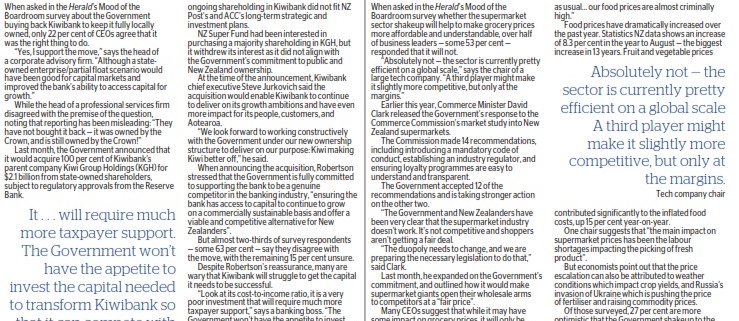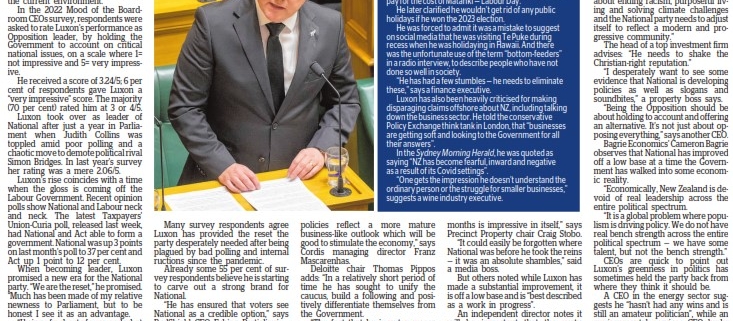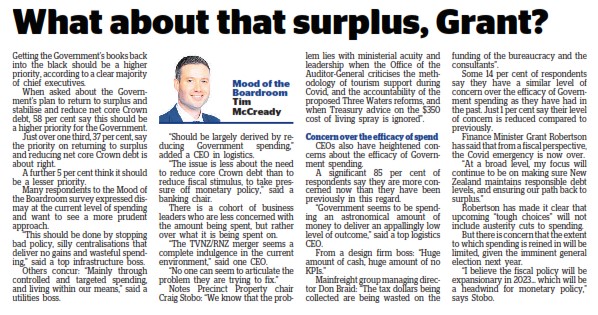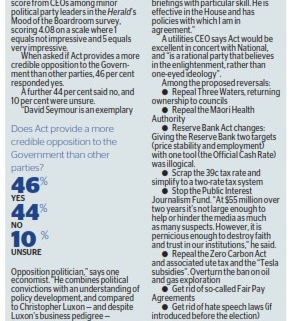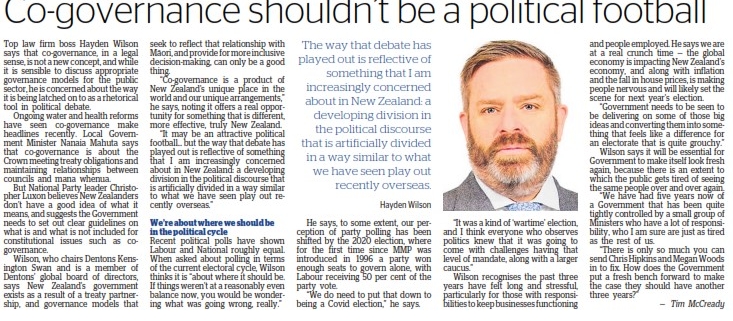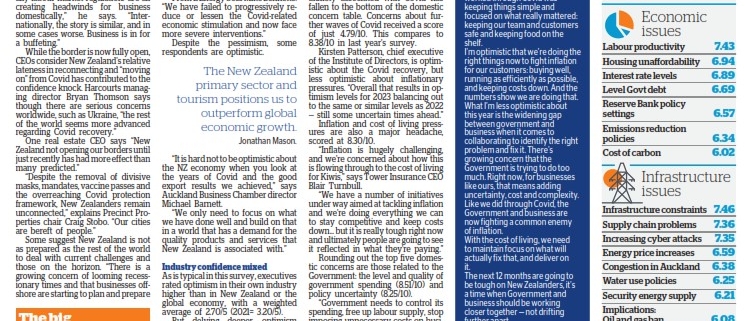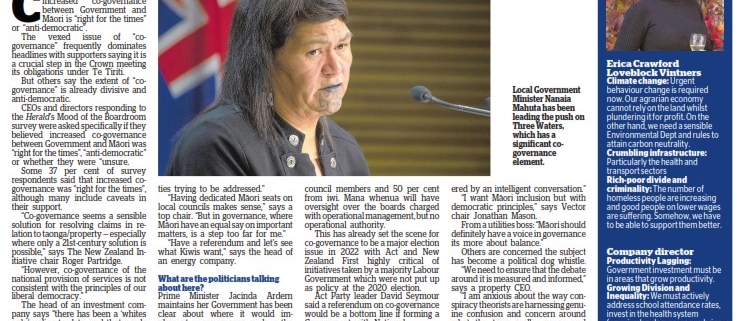A shortage of workers has become a global phenomenon, with the pandemic severely disrupting the labour market. Employers are finding it increasingly difficult to find staff as employees seek out higher wages, remote and flexible work options, and more satisfying employment opportunities that better align with their values.
Further compounding this has been New Zealand’s border closure, which restricted the flow of migrant workers for the past three years. With the border now reopened, skilled workers and pent-up demand from younger people that delayed their OE are considering a shift overseas.
The labour shortage has become a significant economic issue for New Zealand, and a contributor to the ongoing inflationary environment. Though a rising cost of labour may mean employees receive higher wages as employers attempt to attract and retain staff, the cost tends to be passed on in price increases.
When asked in the Herald’s Mood of the Boardroom survey to what degree employee churn is being experienced in their business, just 3 per cent of business leaders say not at all, and 35 per cent say churn is at a manageable level.
“Less than expected,” says Deloitte chair Thomas Pippos. Adds the CEO of a property management firm: “The rate of churn is probably no higher than it has been in the past.”
But a sizeable 56 per cent say churn is increasing, and 6 per cent consider it to be “off the scale”.
A CEO in the design sector says “the industry simply poaches and incentivises with $40,000 salary increases and we have had to do the same, which is unsustainable.”
A tech company chair says while churn has always been high in the IT industry, it is notably higher now: “And some of the salary packages being offered — like double their current salary — make it almost impossible to avoid.”
Some business leaders experiencing significant staff churn are from the real estate industry. But with house prices falling, sales sluggish and housing stock increasing, one industry leader says: “Staff are leaving because they are simply not making an income from real estate.”
Increased investment in staff development
In an effort to retain staff and make up the shortfall in accessible skilled talent, businesses are placing an increased emphasis on investing in employees.
A massive 73 per cent of respondents say their investment in training and skill development over the past two years has increased.
“Lifelong learning and development is key to a sustainable future,” responds Beca executive chair David Carter. “Our Intermediate Development Academy is our latest initiative to be launched.”
Just 4 per cent say training and skills development has decreased, though the reason for this was mostly put down to financial constraints and “expense management due to the pandemic”, or lockdowns significantly limiting the ability of businesses to run programmes to the same extent.
“Our ability to do this was limited in 2020/21, but has increased in 2022 which has balanced it out,” says the head of a professional organisation.
The remaining 23 per cent say training and skill development levels have remained the same.
Immigration delays causing a major challenge
The current immigration restrictions and its management by Immigration New Zealand is another area seen as prohibitive by CEOs.
When asked how challenging this has been on a scale of 1-5 where 1=very difficult and 5= very easy, they give a combined score of 1.85/5.
This response comes from across the board in terms of sectors. “The agricultural workforce is well under strength in key areas,” writes one CEO. “It took two years to get nurses approved, it is crazy,” says another. From a construction CEO: “Our sector needs skilled workers and ultimately the market needs immigration.”
A university boss writes: “Our chief challenge is around international students — who often become others’ workers. There is a potentially dangerous bottleneck we face.”
The need to address workforce gaps at pace, after such a prolonged period with the border closed, has heaped pressure on to Immigration New Zealand’s visa processing capacity. Last month, Immigration New Zealand stood up a Reconnecting New Zealand Incident Management team, with the authority to make decisions and improve the processing of applications. Business leaders are concerned about these delays impacting their ability to source talent, but also the toll it places on staff who already reside here.
“We have worked through the process with a handful of our team who were here when Covid first hit and have almost made it through the process,” writes a CEO in the property industry.
“It has been laborious more than anything else, but I really feel for our people who are in the middle of it. Until the lengthy process is done, they can’t settle in and make themselves at home — and the mental strain of that is real.”
Boost to working holiday scheme doesn’t go far enough
To address the significant and ongoing labour gap, the Government recently doubled the Working Holiday Scheme cap for 2022/23, which will see a further 12,000 working holidaymakers able to enter New Zealand and is extending visas for holidaymakers.
Immigration Minister Michael Wood said the changes would provide immediate relief to those businesses hardest hit by the global worker shortage.
“We have listened to the concerns of these sectors and worked with them to take practicable steps to unlock additional labour,” he said.
But when business leaders were asked whether the change will help, it was met with a muted response. Of those surveyed, just 27 per cent say it will address labour shortages in their sector.
A substantial 45 per cent say it will not help, and 14 per cent are unsure. The remainder says this question wasn’t applicable to the sector they operate in. Many of those that did respond positively left a caveat — while it may help, it won’t be enough to make up the significant number of works that are required.
“It will help, but not at the previous levels nor at the levels required,” says Accordant Group chairman Simon Bennett.
Deloitte’s Thomas Pippos suggests: “Government needs to better allow the market to operate efficiently and only intervene when there is a (looming) market failure.”
Some, including the CEO of an architecture firm, says New Zealand’s relative lateness in opening up to the rest of the world has come too late — “even giving access now, we have missed vital timelines.”
“It remains to be seen if New Zealand’s overall proposition will compete with other countries,” says Foodstuffs North Island CEO Chris Quin.
Adds an environmental services boss: “Why would they come? Australia is more welcoming.”
Growth in automation investment
When asked whether they are investing in automation as a result of tight labour conditions, 68 per cent of respondents say they are. A further 27 per cent say they are not investing in automation, and 5 per cent are unsure.
The head of a large tech firm says the convergence of new technologies — including the Internet of Things, AI and 5G — is creating compelling new use cases for businesses of all sizes to automate parts of their operations, improve efficiency, and enhance the quality of decision-making.
“This is also supporting improved environmental performance through sustainability solutions,” they say. “Now is the time to invest behind these opportunities and encourage more rapid adoption.”
Business leaders are quick to point out that the heightened focus on automation is not necessarily down to the tight labour conditions, but instead is a long-term response to other factors.
“Not because of labour, but to increase efficiencies,” says Mainfreight CEO Don Braid.
A similar response from a tech boss, who has introduced automation into the business “more because we need to do formally manual tasks more efficiently in order to remain competitive in the market”.
From Tower Insurance CEO Blair Turnbull: “We have been investing in automation for a while now and this investment is increasing with the aim of delivering a better customer experience and efficiencies. It is not related to current labour conditions.”
Change the tax settings
A follow-on question asked whether Government should change the tax settings to accelerate investment in automation to lift productivity.
Two-thirds of respondents agree that this would be a good idea.
“This may be a good tool, but we need a suite of changes to raise productivity,” says Accordant’s Simon Bennett.
Just 15 per cent think there should be no change in tax settings, while the remaining 19 per cent are unsure. “I don’t believe in ‘targeted’ tax relief,” says the CEO of a large manufacturer.
A boss in the IT sector thinks that “accelerated depreciation isn’t needed to speed up investment in this area”.
Viewpoints
We’re extremely concerned about not having enough workers to cover the 2023 harvest. That’s despite doing everything we can to attract New Zealanders, providing competitive remuneration, flexibility, training, and career progression.
Low unemployment and the lack of people coming to New Zealand on Working Holiday Visas is exacerbating the issue. RSE workers are a valued part of our business and we would like to see their numbers increase.
The current rules restrict the tasks they are allowed to do and we would really like to see this broadened. Pressures on labour supply are far-reaching, from production through to our hospitality customers. This situation has been building for three years and the impact on our teams is compounding.
We realise this may be a long-term strategy but the need is now.
— Kevin Mapson
Pernod Ricard Winemakers NZ
‘Some of the salary packages being offered — like double their current salary — make it almost impossible to avoid churn’
— IT company chair

